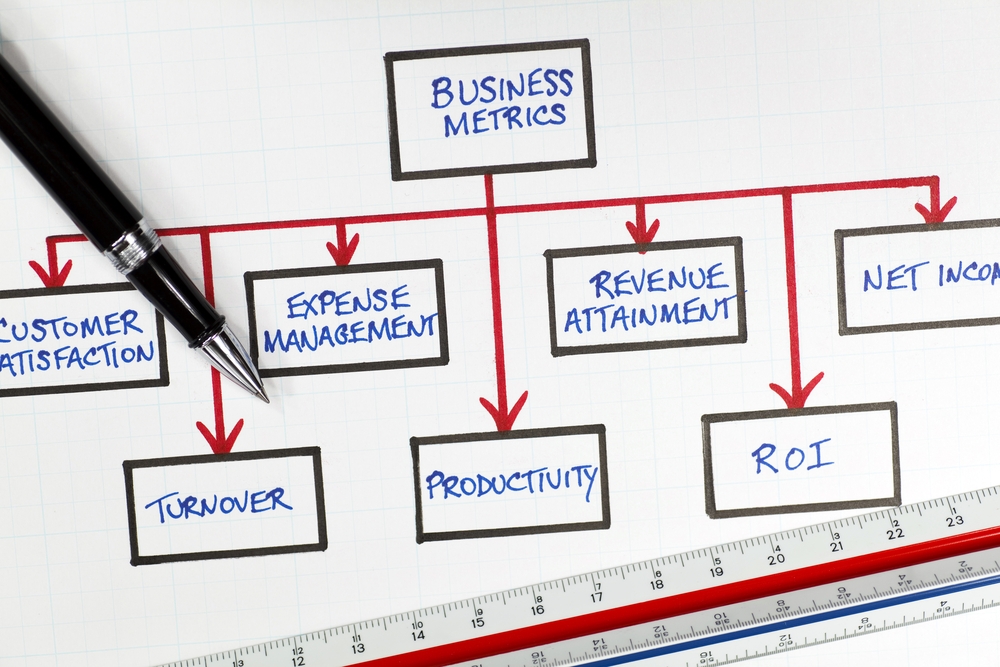
Financial metrics should be critical indicators of business success. However, many people are scared of finance measures or are unsure about which ones really matter and what they are telling us. All my career I have been helping many of the world’s best-known companies with their Key Performance Indicators (KPIs) and one thing I have learnt is that there is a small set of finance KPIs that are almost universally important.
Revenue growth rate
Every business exists to make money – and the primary way of achieving this is generally through creating, sustaining and increasing your income – or revenue.
Tracking this KPI will give you an understanding of when, how and why your revenue is increasing or decreasing over time, and what changes you can make to ensure the trend is up rather than down.
Additionally, if you are hoping to attract investment for your business, the “top line” (revenue) can often be equally or more important than the “bottom line” – profit. Profitability can increase over time simply because your costs decline through leveraging economies of scale. Revenue increases show your business is growing.
Net profit
The “bottom line” – deduct the money you pay out from the money you take in, to show how much money your business is generating. Profits are needed for growth, and to reward the shareholders who provided you with the capital which you used to generate them.
However it is important not to fall into the traps of thinking profits are everything – the other metrics mentioned in this section are vital for ensuring that profitability is sustainable.
Net profit margin
The percentage of your revenue which is net profit. Understanding the relationship between how much money you are bringing in, and how much of this money you get to keep (in profits) is essential. This metric helps us answer the question: “How much profit are we generating for every dollar we make in sales?”
If your profit margins are low, then slight changes in the environment you are operating in could lead to dramatic declines in profit. Monitor this metric over a period of time to determine where lowering costs, or increasing revenue generation, will have the best impact on your profits.
Gross profit margin
The percentage of your revenue which is gross profit. Unlike the above (net profit margin) here we only subtract the cost of goods sold, rather than all costs, so it will always be significantly higher.
If your gross profit margin is low, it could mean that the cost of producing your goods or delivering your services is too high. Additionally, investors will look at a stable gross profit margin as a sign that a company’s business model is sustainable and not unduly at the mercy of outside factors such as material costs.
Operating profit margin
Another key method of assessing a company’s efficiency. Once you remove the costs of operating your business, what proportion of your revenue is left? To get this figure, you simply divide your operating income by your revenue.
You can compare this metric with your competitors to see who is providing similar goods or services in the most efficient manner, and by increasing your own, are able to provide more profits for every dollar that is spent on sales.
Return on investment (ROI)
You need to spend money to make money. But you can’t just go spending willy-nilly. You need to measure how well the money you are spending is translating into money you are making, and that’s where this essential metric comes in.
Understanding where you are getting the best ROI (also called “rate of return” or “rate of profit”) will make sure you know where you are getting the best bang for your buck, and to prioritize where to spend your money.
Cash conversion cycle (CCC)
How quickly does money you invest come back to you as profits? Many companies fail not because they don’t attract enough customers, but simply because they don’t have enough money in the bank to cover the everyday running costs, such as rent and bills.
Tracking the speed at which money spent on various aspects of your business leads to money returning to the company bank account through sales, gives you the ability to make sure you have cash reserves when you need them. Late payment of bills can come with severe penalties which can have a nasty effect on the company’s bottom line.
CCC is measured in days, and a shorted CCC means greater liquidity, more cash available at the right time, and less need for expensive credit.
Author: Bernard Marr
Best-Selling Author, Keynote Speaker and Leading Business and Data Expert









